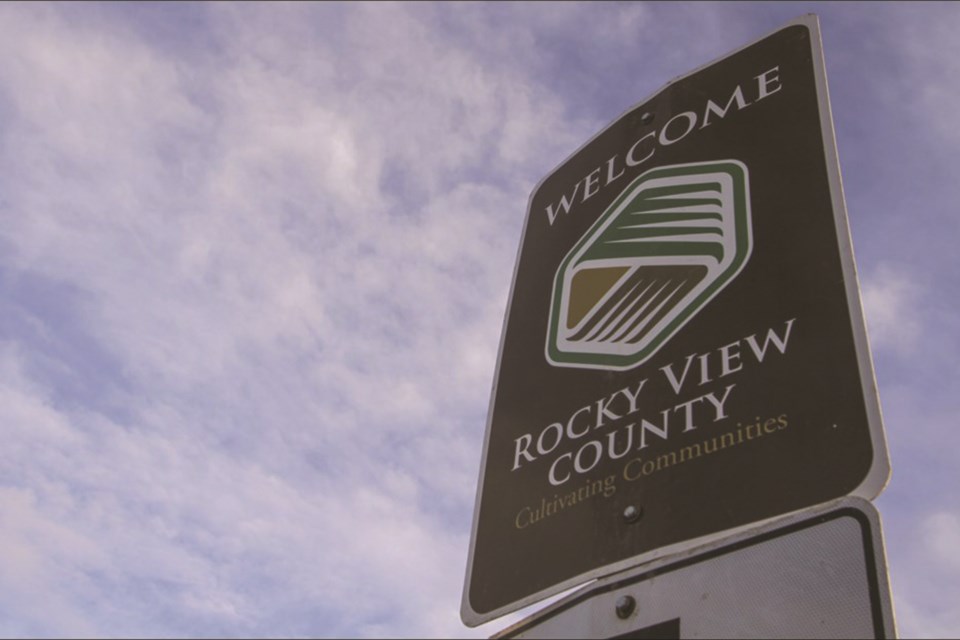The unprecedented hot and dry conditions this summer have led Rocky View County (RVC) to declare a state of agricultural disaster.
The County made the official declaration at an emergency council meeting held Aug. 3.
“Prolonged drought conditions have resulted in reduced sources of feed and projected low crop yields in the county,” said Kristyn Smigelski, an employee with RVC’s agricultural and environmental services.
At the meeting, Smigelski told council that without soil moisture in the spring, producers look to seasonal rainfall to keep pastures healthy. She added a lack of seasonal rain this year, combined with the prolonged heat waves Alberta experienced in June and July, have amplified the problems that farmers and ranchers are facing.
“Conditions in the region continue to deteriorate,” she said. “With little rain and more heat in the forecast, we expect to see further deterioration.”
By declaring the state of agricultural disaster backed by data supporting the issue, the County is able to bring awareness to the problems in the region, but the declaration does not always mean access to additional funding, according to the Rural Municipalities of Alberta’s guide for declaring municipal agricultural disasters in Alberta.
“This declaration highlights how one of the worst growing seasons in recent memory has created a very difficult time for our producers,” said Reeve Dan Henn, in a press release issued by RVC after council's decision.
“We will continue to advocate for relief measures at the provincial level and will support producers in accessing any recovery and assistance programs that become available.”
The special meeting’s agenda report included a crop report posed by the Agriculture Financial Services Corporation (AFSC). The report stated that as of July 27, annual crop conditions in Alberta have declined compared to when the last report was published, with only 20 per cent of the annual crops in the region rating as good or excellent.
“This represents a 17-point drop in the last two weeks and is over 50 points below the five and 10-year average of 71 per cent,” the report stated.
Additionally, the crop report indicated the central region, which includes RVC, experienced the most significant reduction, with a 43-point decline. This was followed by the south, northeast, and northwest regions, which are all experiencing close to a 10-point decline.
Smigelski said at least 50 per cent of the county’s annual crops were rated as poor this summer, with an expected yield loss equalling a 50 per cent reduction for canola, wheat, and barley. Her presentation also said 30 to 80 per cent of perennials, including tame hay and pasture, rated as poor.
Only 16 per cent of the regions crops are rated “good to excellent,” according to the presentation.
“That is compared to 75.1 per cent on the five-year average and 73.4 per cent on the 10-year average,” she said. “Only 0.2 per cent of our pastureland is rated as excellent.”
After Smigelski's presentation, Coun. Greg Boehlke thanked administration for bringing the report forward and said while funding may not be guaranteed, it is important to bring awareness and let producers know the County cares about the state of agriculture.
“This is a mental awareness that somebody cares, and that we are looking out there and seeing there is a disaster going on,” he said.
In a press release issued on Aug. 3, the Alberta government announced a new series of supports for the province’s agriculture producers. According to the release, the governments of Canada and Alberta, through the Canadian Agricultural Partnership, recently doubled the low yield threshold to encourage Alberta’s grain farmers to divert additional cereal or pulse crops to be salvaged for livestock feed.
“Alberta continues to experience a very dry summer, which is a concern for many of the province’s ranchers,” the release stated. “Hot weather places additional stress on growing crops and water supply. Livestock owners depend on a consistent food and water supply for their animals. Without proper support, ranchers can face difficult decisions surrounding sourcing feed, securing water, and selling off herds.
Earlier this year, Alberta’s government also announced a 20 per cent reduction in premium costs for crop, pasture, and forage insurance, which protects against weather-related production losses.
Another support featured in the government's Aug. 3 release included the federal Livestock Tax Deferral, which allows farmers who sell part of their breeding herd due to drought or flooding conditions to defer a portion of sale proceeds to the following year.
Jordan Stricker, AirdrieToday.com
Follow me on Twitter @Jay_Strickz



